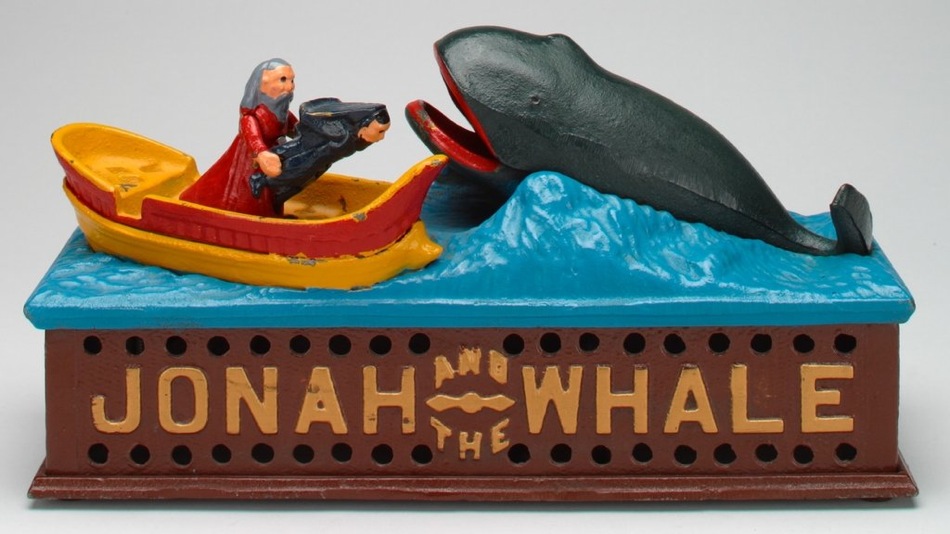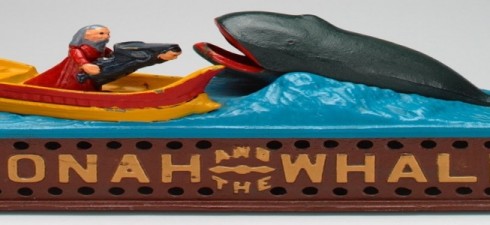
Nearly a year ago, I was distressed to realize that I desperately wanted to be somewhere else, doing something else. I wanted to be someone else. Felt burnt out at work. Phoned it in with my family and wondered if I would ever enjoy them the way I used to. Freaked out when I walked into the building where I’ve attended church for fourteen years and understood that I wanted nothing more than to run away from the cinderblocked place as fast as I could.
Instead, I grabbed my quilted scripture bag and hyperventilated until my breathing returned to normal. The disconcerted feelings did not go away. Whereas I had previously enjoyed ward socials, stake meetings, even satellite broadcasts, they now left a taste in my mouth that reminded me of eating unripe persimmons – something unpleasant I couldn’t fully swallow. Expectations I’d never chafed at before felt burdensome: “No, I didn’t want to bring a green salad for the Elder’s Quorum social”, “No, I didn’t want to tie fleece blankets for humanitarian kits”, “No, I didn’t want to learn how to prepare fudge using pinto beans.”
I wanted to commence a spiritual journey to somewhere else is what I wanted to do! I wanted to be transformed, yet I was all tied down in the same old obligations, including an assignment to teach a lesson over the Book of Jonah during Sunday School.
It’s both a short book and a long poem, hilarious and heartwarming. I had always liked the humanity of Jonah – his rebellion, his cry to the Lord, his performance of duty and his immature defeatism. Preparing the lesson wasn’t going to be too bad. I dug in, remembering the details. Jonah was commanded to go to Nineveh, a hotbed of assumed wickedness, neither holy nor deserving nor familiar. He said, “No way” and headed to Tarshish instead, as far west as he could get from the inland city toward which he had been directed. Of course, the boat got caught in a storm and everyone on board started freaking out. Not Jonah, as he was snoozing, but the crew plead with him, “What meanest thou, O sleeper?”
After he admitted he’d made an oopsie, and suggested that the mariners toss him overboard, he was swallowed by an enormous fish, then spent three days praying to God, promising to get back on track. Jonah was commanded a second time to travel to Nineveh, and after being vomited out, he did as he was told. He marched into the city preaching repentance and impending destruction. Lo, those Ninevites listened to him. They were crazy into the sackcloth and ashes, totally digging his sermons! Disaster was averted.
“But it displeased Jonah exceedingly, and he was very angry.” He left the city to pout a little, hoping that God would yet blast ’em, undeserving as he perceived them to be. Faster than a time-release film, God grew a leafy gourd to provide shade for the petulant prophet. Just when Jonah felt “exceeding glad,” God then sent along a worm that killed the plant and killed the shade. As Jonah wished for death, battered by a divine gust of wind, God asked him, in a very Socratic fashion, why he would possess greater love for a plant than an entire city of human beings. (And cattle.) Were those people somehow less valuable than a leaf?
I chewed on the question for a moment, and was transported into a dusty vision of Jonah and me. A little bit “Sliding Doors”, but more Old Testament. In this vision, I saw myself on a spiritual journey, roused from sleepiness and full of complaints, just like the character in the ancient tale. Like our man in the whale, I too had previously slept through opportunities, especially stormy ones, for spiritual growth.
I too had spent some time inside a great beast praying blindly. Sure, that beast was my own head, not a marine creature, but I was still working to recover my land legs. Like Jonah, I often got annoyed. In fact, some residual irritation flared up as I thought about my congregation. What were they doing in my spiritual journey epiphany? My ward felt worse than Nineveh.
Oh, snap. My ward was my Nineveh.
I started hyperventilating again.
My Nineveh, a place filled with people I wanted to flee, but perhaps a place where I could still learn something. Was I judging these church members as unworthy of my time or attention?
God had observed Jonah’s disgust at the forgiveness of Nineveh, and God called him on it, asking, “Doest thou well to be angry?” Was I doing well to be so angry? Was I being as contemptuous as the judgmental Jonah, who answered God: “I do well to be angry, even unto death.” Perhaps I was, I admitted. I needed to stop jonesing for some ship to take me across the Mediterranean Sea (though I figure a trip to Greece wouldn’t imperil my spiritual development). And just like that, the shade withered and the wind blew in, carrying with it these marching orders:
- Be the kind of church member you wish others to be.
- Don’t flee Nineveh. And good heavens, don’t sit outside the city walls and pout.
Even if he managed to get his heart in the right place – and the book leaves us hanging on that question – I doubt Jonah stayed inland the rest of his life. Maybe Tarshish got to be his next destination. There are many ports of call, for Biblical prophets and the rest of us. Not everyone who leaves a place is fleeing. But as I continue my spiritual journey, I want to be searching for something, not merely running away.

I love this post. Especially the last paragraph:
“Even if he managed to get his heart in the right place — and the book leaves us hanging on that question — I doubt Jonah stayed inland the rest of his life. Maybe Tarshish got to be his next destination. There are many ports of call, for Biblical prophets and the rest of us. Not everyone who leaves a place is fleeing. But as I continue my spiritual journey, I want to be searching for something, not merely running away.”
It seems to me that the important insight here is the awareness you brought to your desire to flee (which you describe so well and, boy, do I find myself in that place on a regular basis). I’ve just spent years wanting to flee and trying to work out why and what I was running away from and whether I could continue to progress in my Ninevah. In the end, I have felt drawn to another port of call, but none of the time I spent in my Ninevah was wasted.
I’m glad you can relate & I think it is important to figure out what we’re trying to run away from. If we don’t know that much, then we’ll find wherever we go. I like the idea too, that our time in various places/congregations/relationships isn’t wasted. It’s all part of the journey.
“. . . . but I was still working to recover my land legs.”
YES! I was just complaining this morning about church, about my community, about how we never seem to be doing _____________, and the filler of that blank changes as quickly as my mood.
This was a good post. I’m growing to learn that my two greatest sins in the sight of the Lord might not be the biggies that I’m nervous to confess to others, but my greater sins might be my laziness and my whininess. Laziness that holds me back from running to God, running to Ninevah, as you say. And whininess to sit and complain about the very graces and gifts God has given me. There’s even a great line in The Book of Jonah where the prophet says, “Those who cling to worthless idols forfeit the grace that could be theirs.” God forbid that the idols I cling to are pillows and grouchiness.
Keep these coming, writer. This is good.
Thanks for adding that verse, sir! Jonah was clinging. I am good at it myself, especially the clinging to pillows and sleep. :)
Lovely insights.
Hey, thanks! I love it when my brain manages to generate a few.
I used to envy your students since I was not in your Sunday school class, but now I don’t have to any longer–thanks for my lesson for the day. Beautiful thoughts beautifully written.
Awww, that’s nice! Something I’m excited about re: the opportunity to write here is to articulate some of the things I *want* to say in Sunday School but can’t … or the things I ran out of time for … or the things I thought of once the lesson was over. I know you know the feeling. :)
I’m not a regular reader, but a friend shared a link to this post. Thank you for writing it! It was a great analogy that struck a chord with me — perhaps a deeper one than I would readily admit to others. At any rate, I will be reconsidering my perspective along with the lessons of Jonah. Thank you again.
I’m so glad you stopped in … and thanks to your friend as well. I love finding those powerful analogies in the scriptures – and sometimes they aren’t the ones I’ve been taught my whole life. Glad it struck a chord for others besides just me. :)
Great post! Really brought this crazy story home for me. Thanks.
It is a crazy story, isn’t it? In the best possible way. I think that once I stopped thinking of it as literal (or so unbelievable how could anyone believe it was literal???), it started to teach me something. Thanks for reading!
Yeah, it’s very interesting how people can think that it DETRACTS from the meaning to think of it symbolically/metaphorically. I don’t feel that way at all. To me, it makes it ALL THE MOE meaningful and interesting.
If I really try to carve some meaning out of a story wherein a man is seriously swallowed by a whale, well, that’s a pretty tall order . . . but once I peel back that expectation, it feels like there’s a world of possibilities there.
I guess I always thought the story of Jonah was more about racism. Jonah did not want to convert these people – he had some agenda against them. He was disappointed after they did convert.
It’s interesting that God would include it and that people would boil it done to the fish part – when the lesson is really that God loves us all.
Also interesting, it inspires you to stay in church – it confirms my path to have nothing to do with the church anymore.
Oh, I think there are lots of meanings in there. I think the message of (spiritual) racism is clear and powerful too. This is just a meaning I pulled out for me, but certainly not the final word in the story.
It is ironic that the detail that perhaps should make it most metaphorical to us (the fish) ends up bogging down the interpretation.
And I totally get the need to leave. For me, it was a realization that fleeing wasn’t going to solve my problems. However, I do not think leaving and fleeing are the same thing. People can flee TO the church just as easily as away from it. :)